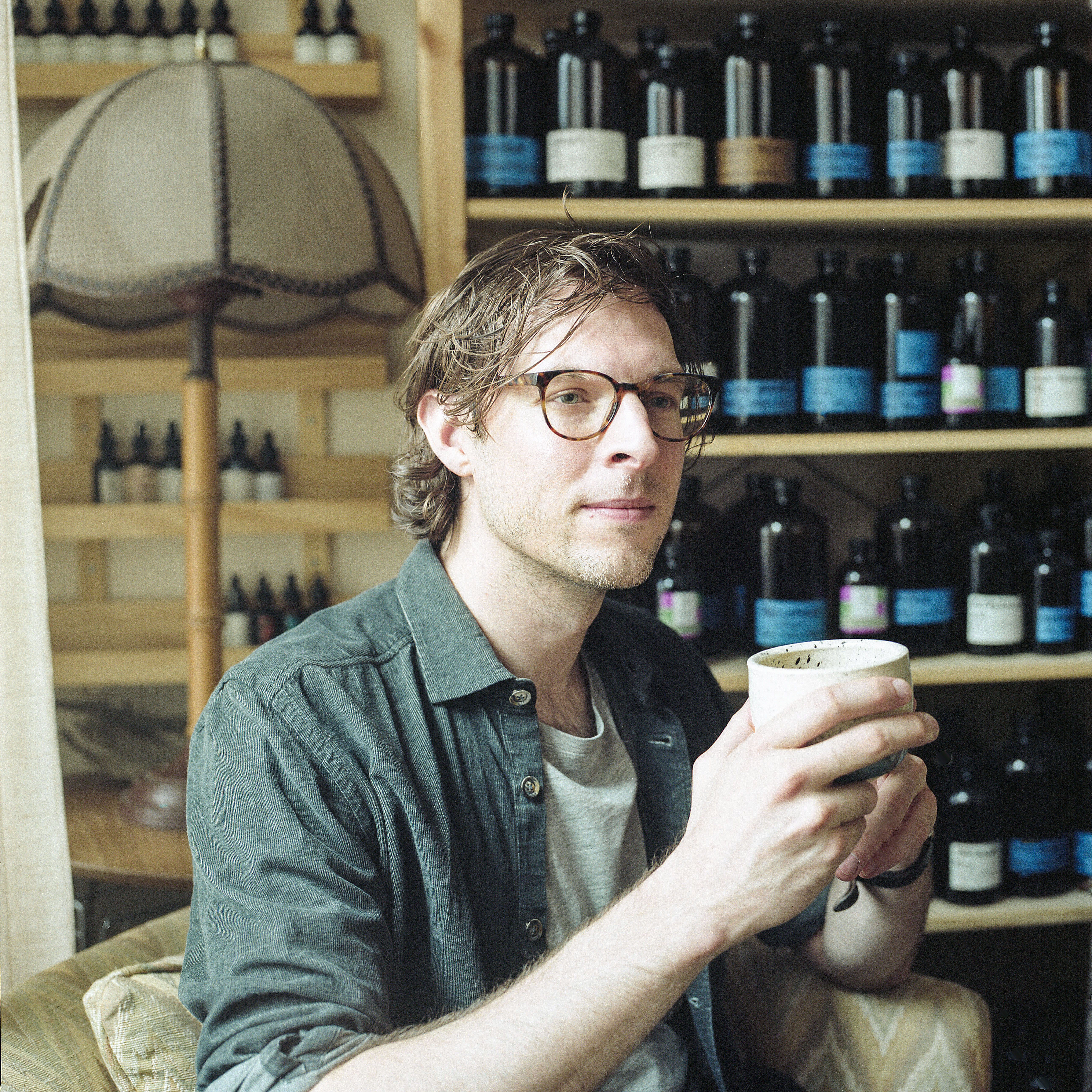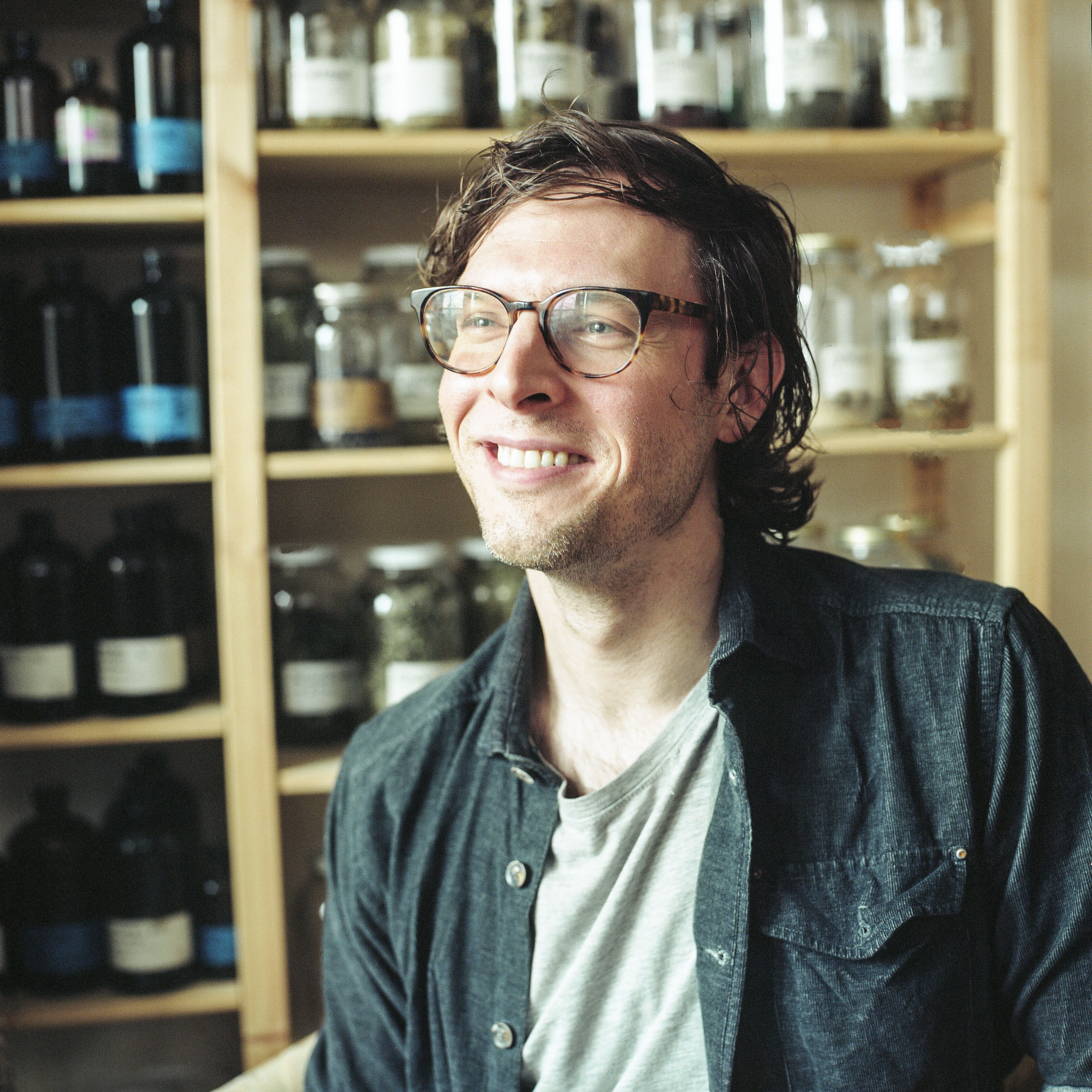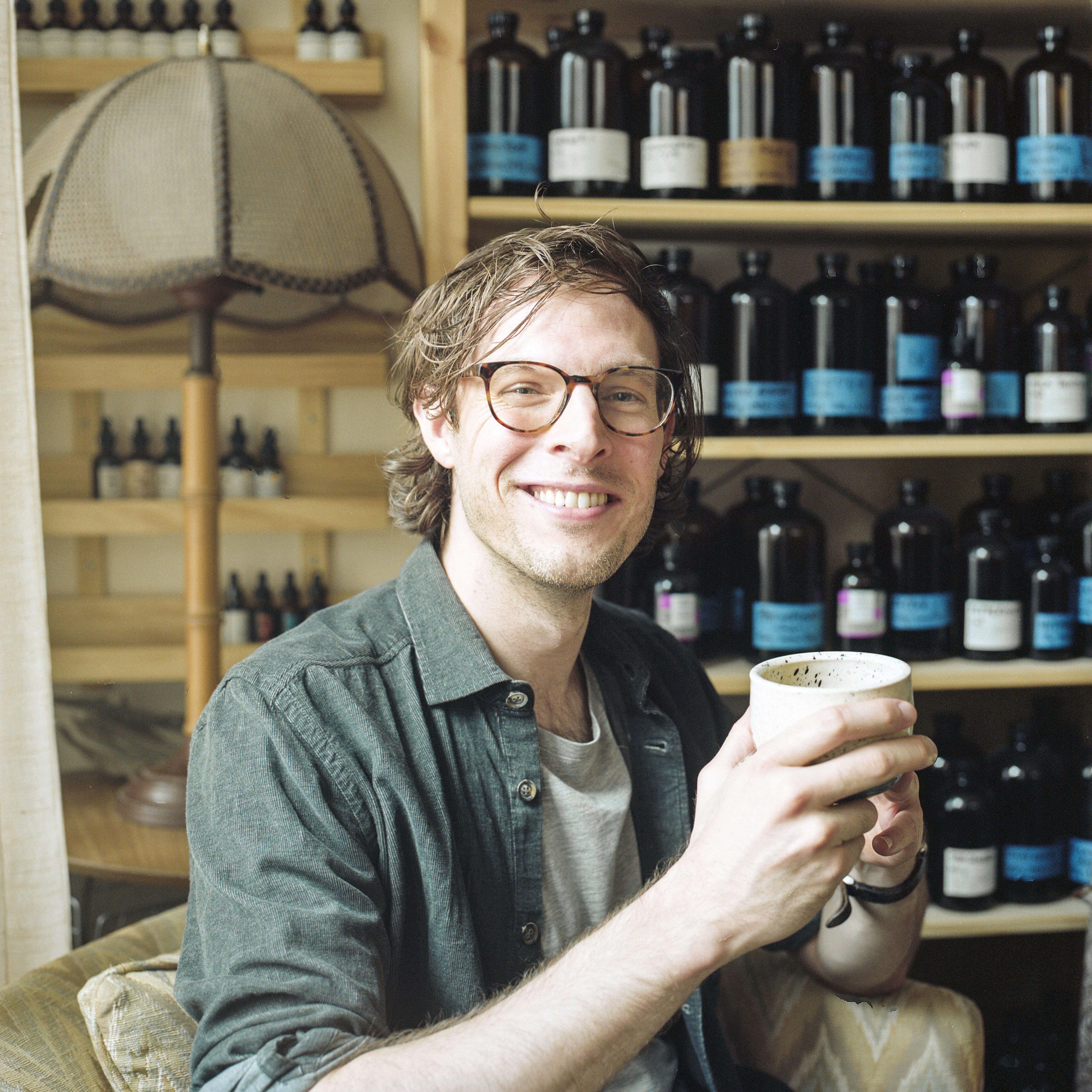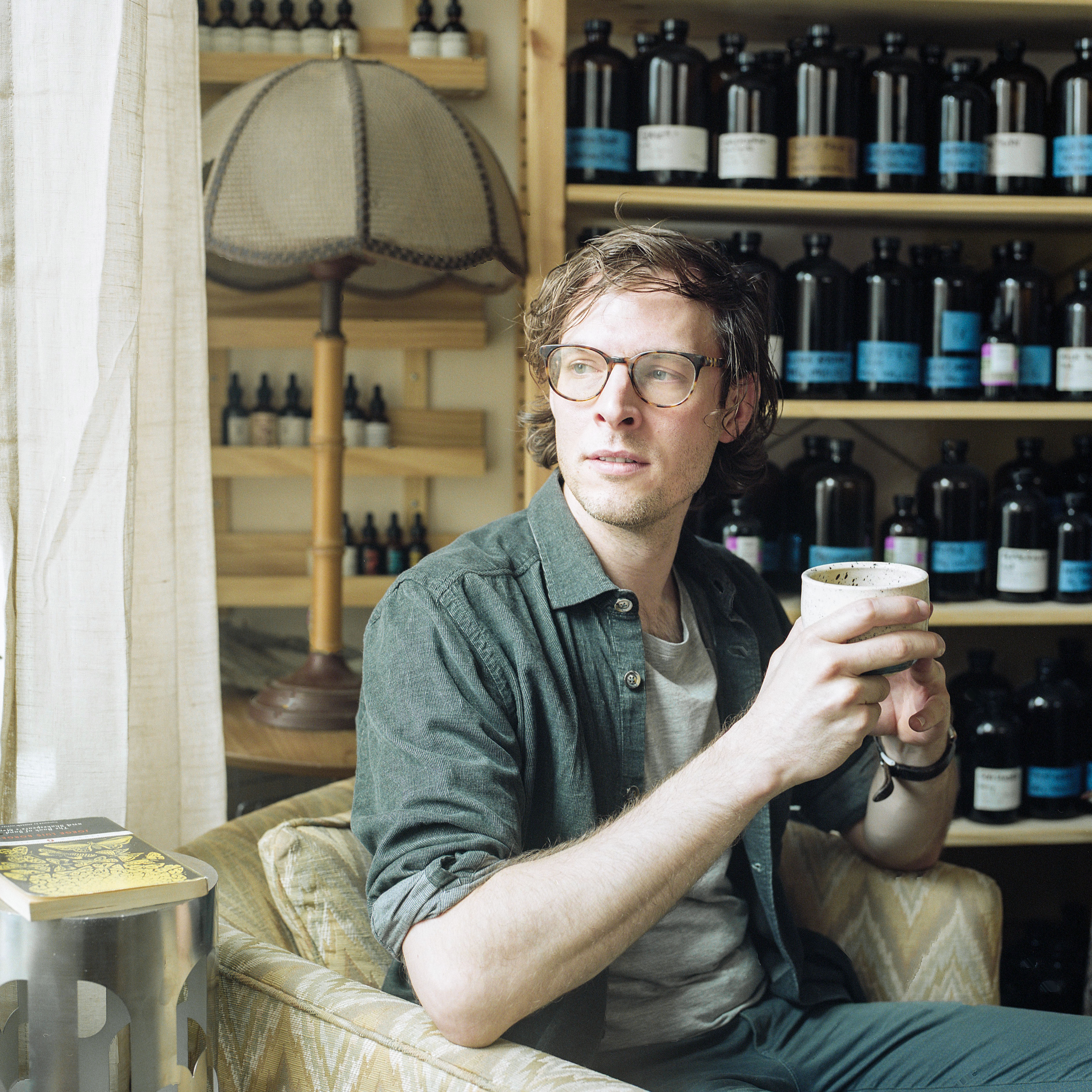Food Consumer & Creator
Forest
Soil
Aliveness
Soil
Aliveness

“Carving out time to make a nourishing meal for myself is no different from making a potion. Cooking and eating is a process of alchemical creation, uniting the unique personalities of different foods and herbs, and transforming them with the elements (earth, water, fire, air) into a joyous and sensuous experience of nourishment.”
While so many of my food memories conjure family holidays or potlucks with friends, the most transformative memories take me to wilder places far from the city, where wild berries, fruits, mushrooms, and herbaceous greens offer themselves freely to any passerby.
As an herbalist, my work involves apprenticing myself to the land where I am from. It involves learning about who lived here before (human and non-human alike) and building deep relationships so the land can support future generations. More often than not, the work is infused with wonder and joy, because despite any scars we have inflicted as humans the land of our beautiful bioregion continues to give, asking only gratitude and stewardship in return.
When I am out in the woods, either wildcrafting for medicinal preparations or just visiting my non-human kin, I often cross paths with wild edibles like raspberry and blueberry, mushrooms like oyster, hen of the woods, and chanterelle, and greens like violet, chickweed, nettle, and white lettuce.
Backpacking in the Upper Peninsula of Michigan one year, surrounded by a feast of wild edibles, I finally learned what the philosopher, David Abram, meant when he said, ‘We are human only in contact, and conviviality, with what is not human.’ I am with my partner and some of my close friends. All these people deeply value the experience of accumulating sweat and soil over the course of several days hiking and camping as far away from civilization as possible.

For me, eating wild foods is an act of remembrance. As a kid, I lived and went to school in suburbia. What I have come to realize is that suburbia has a tendency to alienate people from the very place they tread upon. Bioregionalism is not a concept that is often cared for or tended to, let alone taught. These places become realms of amnesia, paving roads over wildflowers and prairie, naming these very streets after the grasses they demolished.
Eating local foods reminds me that selfhood does not end at the periphery of my skin, but extends outward to the ecological community that surrounds me. Human and non-human kin make up who I am, and so in receiving the gifts that this land offers, I feel a sense of responsibility towards ‘place‘. For much of my life, I had to re-learn what it means to live in ‘place‘, what it means to be rooted, and what it means to make kin with the non-human world. In a way, I had to re-learn what it means to be human.
I am hiking east on the North County Trail, there is a pause in our conversation. We have been walking for miles and are ready to find a good spot to have some lunch before we continue on to our campsite. The trail weaves among forest and thicket, with momentary glimpses of Lake Superior peering through breaks in the trees. We have already been nibbling on wintergreen leaves and blueberries from the bushes that line the trail, but we’re looking forward to something a little more substantial. I have my mind on some dried chicken something-or-other we dehydrated before the trip. We catch up with the pace-setter of our humble little pack who has propped himself proudly next to a tree populated with beautiful, almost glowing oyster mushrooms.


My relationship with food is a work in progress. Just because I am an herbalist with a heart for good food and well-being does not mean I do not have cravings. Most recently, I learned to love cooking for myself. For years, I have combined the energetics and unique personalities of plants and mushrooms to craft potions, concoctions, tinctures, and other herbal remedies to support the well-being of myself and my loved ones.
As a ‘baby’ herbalist many years ago, I forgot that food has always been the foundation. I would make potions at the expense of making myself a good meal. It clicked the last few years. Carving out time to make a nourishing meal for me is no different from making a potion. Cooking and eating is a process of alchemical creation, uniting the unique personalities of different foods and herbs, and transforming them with the elements (earth, water, fire, air) into a joyous and sensuous experience of nourishment.
‘Are these edible?’ he asks. Everybody looks at me since I am the ‘expert’, so-to-speak. Yes, for once, I know these are edible! These are the humble and abundant oyster mushrooms. In past years, I might not have been so sure and passed them over because I did not feel entirely confident (I have learned that mis-identifying and eating the wrong mushroom can lead to an agonizing death). But this time, I was certain! The dried chicken something-or-other I was only half-enthused about faded from my mind. I took out my knife and cut pounds of mushrooms from the tree into a bundle made out of my bandana. Thanking the tree, and the remaining mushrooms, we headed up the trail to a fire ring overlooking a stream running down to Lake Superior. We began cooking the mushrooms in batches, our camp cookware too small to accommodate such bounty.
The people who had the most profound impact on my relationship with food came to me later in life. Stef, my partner in crime, understood long before I did that food is the foundation for everything. She prioritized good, home-cooked meals, making sure these took precedence over the busyness and stress we endured at the time. I learned to carve out time in my days to slow down, cook, and eat. There is no way to build relationships without slowing down. We must take time to nourish ourselves, both with the foods we eat and the communities in which we grow.
My relationship with food has deeply developed through these epiphanies. It is a practice in reciprocity, an acknowledgment of our fundamental interdependence with ‘place‘. It has called me to celebrate foods of all cultural traditions and reminds me to become more acquainted with the foods that grow local, integrating them on regular basis.

I smell the heavy, resinous aromatics of a coniferous forest, mixed with slight drafts of our own sweat, overtaken by the umami richness of the oyster mushrooms swimming in olive oil in the pan (yes, we pack a small container of olive oil for cases such as these). The overarching taste is delicate and savory, warming and soothing with a distant flavor inherent to all of the best culinary mushrooms: something subterranean and mysterious, an undefinable taste that conjures desire every time a mushroom hits a hot pan. But beyond that, there is a quality in the taste, a kind of energy that whispers to the tongue, ‘Hey there, neighbor.’
My food journey has also brought me to the wonderful world of bitter foods and herbs which are increasingly discarded from many people’s diets due to selective breeding and the challenges inherent to their bitter taste. But these are foods that we, and our digestive systems, have evolved with for millennia! They are incredibly nourishing and supportive of healthy digestion and elimination. While I did not always like the taste, the more I incorporate bitter foods like dandelion leaf, radicchio, chicory, endive, rapini, and burdock root into my routine, the more I come to crave the bitter taste!
Unlike the foods that we packed that were purchased in a grocery store hundreds of miles away (which first came to these places on trucks from another hundreds of miles away), these mushrooms came from right here, the north coast of the Upper Peninsula. And somehow, we could all taste it. We could taste their ‘hereness’. I hear the gentle hiss of mushrooms sweating in the pan wrapped in the slow flowing of a stream falling into the largest of the great lakes. Trees awakened through suggestion by the slightest wind, and the march of a small group of boy scouts we’ve been leapfrogging for the past couple of miles. ‘Smells good!’ they say. ‘Sure does.’
I am so grateful that my journey with food has brought me back to my body and the body of earth, connecting me with who I really am. There are many roads home, no one road is necessarily better than the rest. But we need food, so why not begin our journey home through the foods we eat?

I feel a sense of welcoming, abundance, enoughness…of home. Sure, home is hundreds of miles away, but my sense of home has grown since I started connecting with wild plants and fungi here in the Midwest. Home is everywhere. I see myself reflected in the familiar plants and mushrooms I encounter. Every time I am out walking and find something to nibble on, it seems that this memory, and all memories of being fed, cared for, and nourished by our great mother earth seem to stir within me.
Recipe:
While there are many memories of enjoying wild mushrooms from intricate recipes, this one was simply wild oyster mushrooms sautéed in olive oil, salt, and pepper. Sometimes that is all you need to create a memory!
Biography:
Alex Williams is co-founder of First Curve Apothecary and a community & clinical herbalist based in Chicago. Alex offers holistic herbal consultations, teaches herbalism courses & workshops, and runs a community apothecary to offer free and sliding-scale herbal remedies and services to Chicago communities. Alex also teaches Social Theory, Sociology of Health & Illness, and Sociology of Mental Health at Roosevelt University. Every once in a while, he writes an occasional haiku.
https://firstcurveapothecary.com/
https://www.instagram.com/firstcurveapothecary/
[ Alex Williams is photographed at his home, and workshop, in Logan Square, Chicago, on 120mm film. ]
Happy everyday!